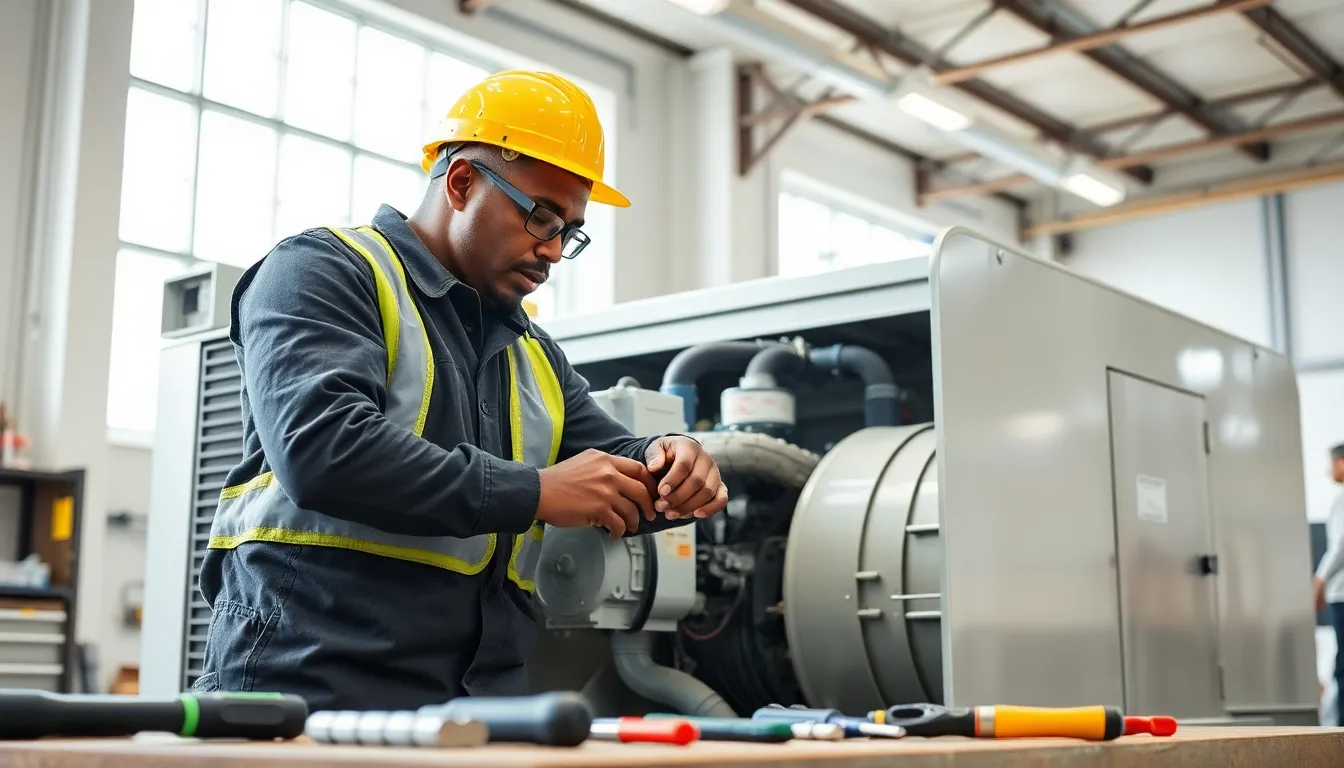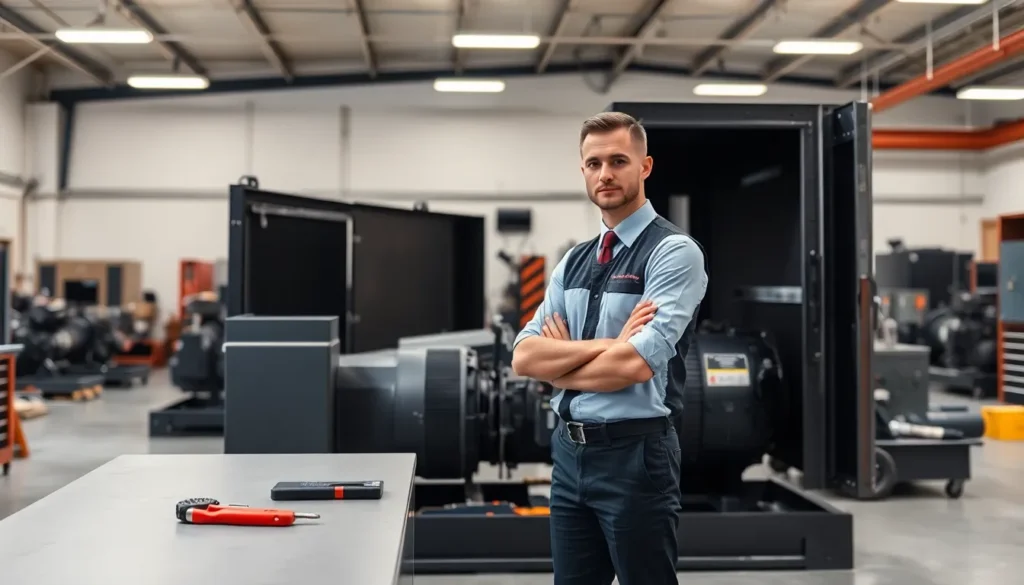Table of Contents
ToggleImagine a world where your generator fails just when you need it the most. Not ideal, right? Regular maintenance can prevent disaster and keep those vital watts flowing. Think of your generator as a trusty steed, neglect it, and it might throw you off. In this guide, we’ll explore the importance of maintenance, common problems, and essential repair tips. Buckle up, it’s time to ensure that your generator is ready to roar.
Importance Of Regular Maintenance

Regular maintenance is crucial for any generator’s longevity and reliability. Just like a car, generators require periodic checks to function optimally. Skipping maintenance can lead to inefficient performance and costly repairs down the line.
Thought about how generators work? They convert mechanical energy into electrical energy, and any hiccup in this process can leave you in the dark. Routine check-ups not only enhance efficiency but also ensure safety. After all, a well-maintained generator is less likely to malfunction during an emergency.
By following a maintenance schedule, owners can pinpoint issues early, potentially avoiding a complete breakdown. In fact, studies show that regular maintenance can extend the lifespan of a generator by several years. So, why risk it? Invest your time now in maintenance for a worry-free power supply later.
Common Generator Problems
Generators, like any mechanical device, can encounter problems. Identifying these issues quickly can save time and money. Here are some common generator problems:
- Fuel Issues: Old or contaminated fuel can cause performance issues. Generators require clean, fresh fuel for optimal operation.
- Oil Leaks: A leaking generator can signify deeper issues. Frequent checks can help catch this problem early.
- Dead Batteries: When a generator fails to start, the battery might be the culprit. Batteries have a lifespan and need replacing periodically.
- Overheating: If a generator is running hotter than normal, it may indicate coolant issues or blockages in airflow.
Awareness of these problems not only aids in quick fixes but also informs maintenance routines.
Routine Maintenance Tasks
Routine maintenance encompasses several essential tasks. Performing these can ensure your generator is in top condition. Here are key maintenance activities to include:
- Oil Changes: Just like in your car, oil keeps generator parts lubed and cool. Regular oil changes prevent unnecessary wear.
- Filter Checks: Clean air and fuel filters are vital for optimal performance. Dirt buildup can choke your generator’s efficiency.
- Battery Maintenance: Inspect terminals and clean any corrosion. Regularly test battery charge to avoid surprises.
- Load Testing: Testing how your generator performs under load helps pinpoint performance issues and ensures reliability.
Establishing a maintenance schedule helps keep these tasks organized and ensures consistent performance.
Repairing Common Issues
When it comes to repairs, addressing issues promptly is vital. Here’s a closer look at how to tackle common generator problems:
- Fuel System Repairs: If dirt or water contaminates the fuel system, it’s essential to flush and clean it out thoroughly. Replacement of filters and cleaning the fuel lines may be necessary.
- Oil Leak Fixes: For leaking oil, identify the source before sealing. Gaskets may need replacing or tightening.
- Battery Troubleshooting: If a battery doesn’t hold charge, consider testing with a multimeter. Replacing a faulty battery is often the best solution.
- Cooling System Repairs: Checks for blockages in the coolant system can help. Flush the system if overheating persists, and check hoses for leaks.
Being proactive in repairs can prevent minor issues from evolving into costly fixes.
Choosing A Professional For Repair
Choosing the right professional for generator repair is not just about fixing the problem: it’s about ensuring the longevity and efficiency of your equipment. Here are key points to consider when selecting a technician:
- Experience Matters: Look for technicians with specialized experience in generator repair. Familiarity with specific brands and models is a plus.
- Certifications: Certified professionals often provide better insights into repair techniques and compliance with safety standards.
- Reviews and Recommendations: Check online reviews or ask friends for recommendations. A good technician should come highly regarded.
- Service Guarantees: Choose someone who offers a warranty on their work, ensuring that you are protected against future issues.
Investing time in choosing the right professional can save you money and headaches later.
Best Practices For Optimal Performance
To keep a generator running smoothly, implementing best practices is key. Here are some tried-and-true tips:
- Regular Exercise: Run the generator for at least 30 minutes every month to keep the engine lubricated and check functionality.
- Keep It Covered: Protect it from moisture and debris with a quality cover. This can prevent rust and other environmental damage.
- Schedule Professional Inspections: Annual inspections by professionals can identify potential issues before they become costly repairs.
- Maintain a Clean Area: Ensure the generator is located in a well-ventilated area, free from debris that could obstruct airflow.
Following these best practices ensures that generators perform optimally, providing peace of mind during power outages.





